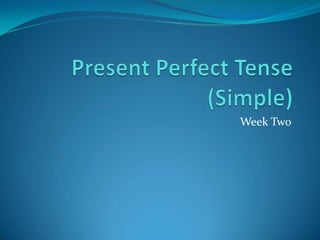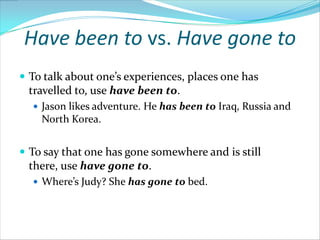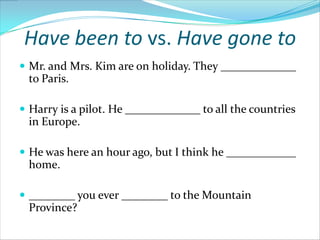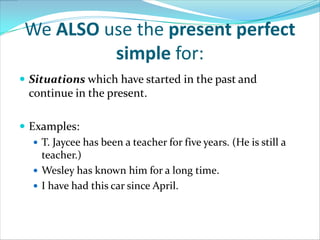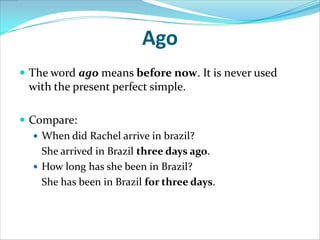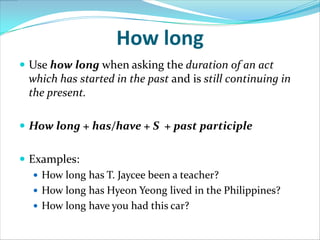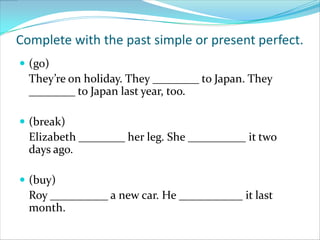The document provides instruction on using the present perfect tense in English, including its forms (affirmative, negative, interrogative), subjects it is used with (has/have), situations it describes (actions that took place in the past without specifying time, actions with present relevance, experiences), and comparisons to other tenses like the past simple. It also covers usage of words like already, just, yet, for, since, ago, and how long in the present perfect tense and provides examples of questions to ask using these words.
